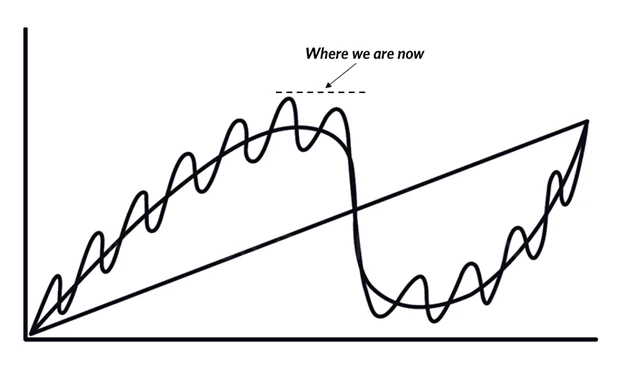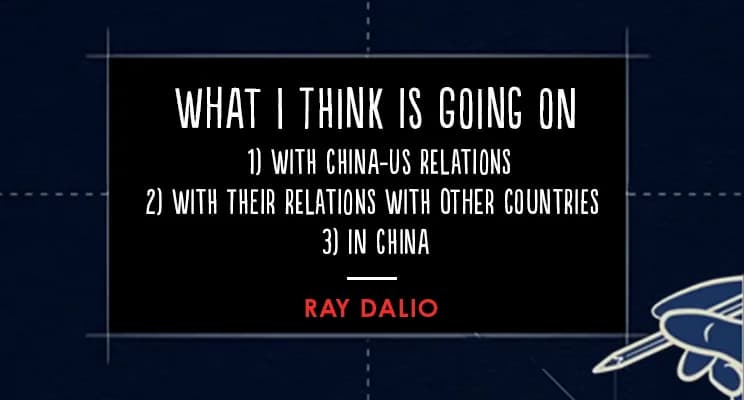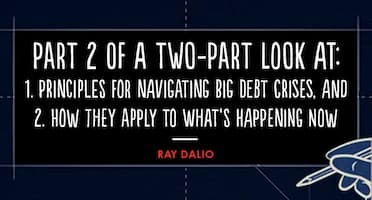Assessing Ray Dalio's Latest Warnings on Geopolitical Tensions
Ray Dalio's latest warnings connect domestic polarization to rising war risks between major powers—but his stark predictions may overstate how close we are to systemic collapse.
For those who have been following my blog, you know I have been a long-time follower of Ray Dalio's work. He recently published two more articles on LinkedIn that double down on his cautious — even alarmed — view about rising global conflicts. Dalio sees events like the Israel-Hamas war and Russia's invasion of Ukraine as steps toward a major power war, most worryingly between the US and China.
As in his past work, Dalio analyzes these current events through the lens of historical cycles and his own analytical framework of five forces that drive global trends. He frequently references concepts like the "Big Cycle" of empires rising and declining and specific tipping points where contained conflicts escalate to outright war. Before delving into Dalio's recent articles, you may want to check out my previous post on his long-term predictions in 'The changing world order'.
The Failure of Kevin McCarthy is Another Step Away from Democracy and Toward Civil War
In his October 5th article, Dalio focuses on the context of worsening domestic partisan polarization in the US, using the ousting of Kevin McCarthy as House Speaker as a timely example. He argues this is fueling internal disorder and raising risks of "some form of civil war".
Another Step Toward International War
His October 12th article shifts to assessing the Israel-Hamas and Russia-Ukraine wars. Dalio sees these as likely to spread into a broader regional or even global conflict unless major powers step back from the brink. He draws explicit parallels to pre-WWI and pre-WWII periods and worries the current geopolitical tensions could unleash World War III.
Urgency
While these new articles build on Dalio's past work in their pessimism and use of historical cycles as an analytical prism, the tone feels more urgent. He speaks of specific near-term decisions and pivotal moments that will determine whether unrestrained war can be averted. There is also more explicit discussion of how internal partisan polarization affects global stability.
Dalio continues to make sweeping claims about the likelihood of civil war, great power war, etc. without always providing concrete data sources or evidence beyond historical anecdotes. However, his track record of macroeconomic analysis lends credibility. And he rightly identifies worrying real-world trends like increased nuclear saber rattling from Russia.
Reactions among policy experts to Dalio's perspectives vary. Some see value in the "above the fray" geopolitical analysis he provides from the private sector. But others argue his conclusions go beyond what current data supports, and that predictions of imminent major war are premature or overstated.
My perspective
I have to admit, I am a student in this subject and I don't pretend to have all the answers. But from what I have read and observed — having lived in both Asia and the US — I think Dalio has an astute ability to take a nuanced global view rooted in historical patterns. His framework is genuinely useful for making sense of today's chaotic events.
However, I think his stark warnings about worldwide collapse into war should be viewed partly as deliberately provocative rather than prophecy. His sweeping pronouncements about civil war in the US or global conflagration sometimes minimize the stable institutional forces that still exist. Reform may be painfully slow, but I believe pathways likely exist short of total system failure or war. I might be wrong about this, but that is how I see it right now.
Still, we should be more worried now than six months ago.
Conclusion
Dalio's latest articles offer genuine food for thought about where things are heading, even if his urgency merits some skepticism. I think the best approach is to absorb the big picture analysis he excels at while maintaining space for more optimistic scenarios.
What do you think — is Dalio being too alarmist, or are we not worried enough? I'd love to hear your perspective on this.
Cheers,
Chandler
More from this series
- The Changing World Order: Ray Dalio's insights — the main hub with all updates
- Ray Dalio's 2024 Great Powers Index — the latest analysis with updated power scores
- Applying Ray Dalio's recommendations to personal finance





